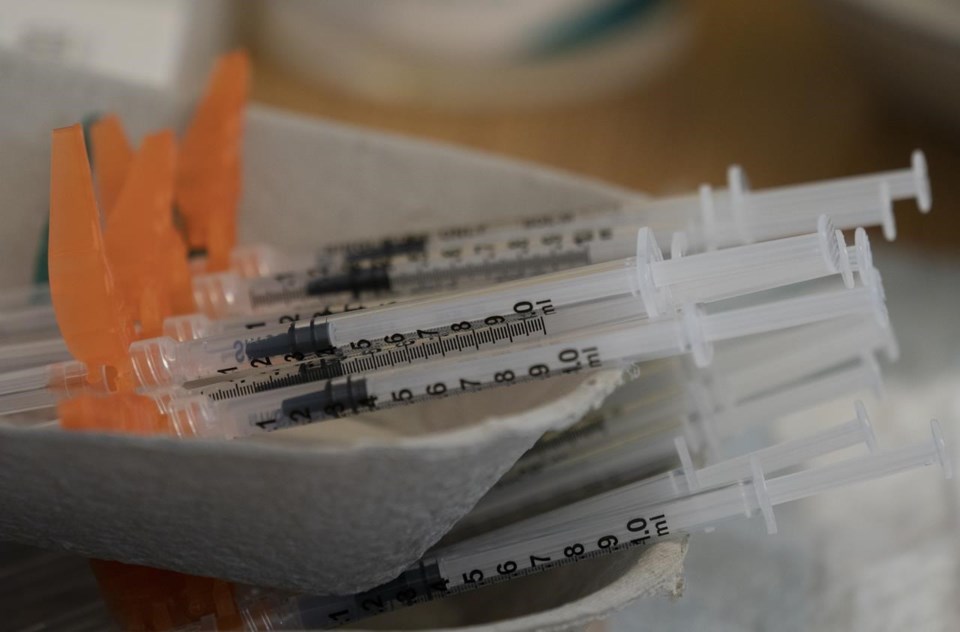VICTORIA — A person who recently returned to British Columbia from Nigeria has been identified as the province's first case of the COVID-19 Omicron variant, provincial health officer Dr. Bonnie Henry said Tuesday.
B.C. has now become the fourth province to identify a case of the variant of concern.
Henry said the affected person lives in the area covered by the Fraser Health authority.
"They are isolating and public health is, as we do with every case, following up with them and their contacts at this time," she said at a news conference.
Henry said 204 people who recently returned from parts of southern African with outbreaks of the variant are undergoing testing while in quarantine.
The federal government announced Tuesday that all air travellers coming in from foreign destinations, except from the United States, will now be tested for COVID-19 when they arrive at Canadian airports, regardless of their vaccination status.
Health Minister Adrian Dix said he and Henry and other B.C. health officials are meeting with federal officials later Tuesday to discuss approaches to travel issues and the Omicron variant.
"We're supportive of the federal government taking precautionary steps until we better understand the potential risks of the variant," he said.
The Omicron variant has also been found in Ontario, Quebec and Alberta.
Henry said the Omicron variant is currently not widespread in B.C., but the depth of its transmissibility and whether it will become more prevalent than the Delta variant is also not yet known.
"The level of concern is at watchful level," she said. "It is something we are paying attention to. It is inevitable, I believe, that we will see more cases, but what we're not seeing is widespread transmission right now."
Henry also announced new restrictions for faith services heading into the Christmas holiday season with people attending and participating in those services, such as choir members, required to wear masks unless physical distancing is in place, while capacity will also be limited to 50 per cent unless every attendee is vaccinated.
For those who have travel plans this holiday season, Henry said she encouraged people to re-evaluate their plans in this rapidly changing pandemic environment.
"You need to understand your own personal risks when you're travelling," said Henry. "You need to really take a step back and realize we're not through this yet. These are the times when my recommendation is to think about staying close, staying close to home, staying close to your family and having your gatherings small."
The government reported 358 new cases of COVID-19 on Tuesday with no new deaths.
There are 300 people in hospital and 104 of them are in intensive care units.
It said 87.8 per cent of those 12 and older in B.C. have received both their vaccinations, although that number drops to 81.5 per cent when children five and older are added to the mix.
Henry said she is lifting health orders limiting the size of indoor and outdoor events for vaccinated people in Interior Health due to declines in COVID-19 transmission rates, but restrictions in Northern Health on bars, nightclubs and in-person worship services will be extended until Jan. 31.
Earlier Tuesday, the B.C. government said more than 98 per cent of public service workers meet provincial proof-of-vaccination requirements.
The Public Service Agency said in a statement 432 employees either are unvaccinated or declined to disclose their status before a Nov. 22 deadline for them to be either partially or fully vaccinated.
It said 97 per cent of the more than 38,000 government workers are fully vaccinated, 439 people are partially vaccinated and another 274 workers have asked for accommodation based on medical or other reasons.
Employees who are unvaccinated, refuse to disclose their status, or who are partially vaccinated and don't get their second dose within 35 days of their first dose will be placed on unpaid leave for three months, the agency said.
Employees who do not show proof of full vaccination after the three-month unpaid leave may be terminated.
The policy applies to all employees who work for the B.C. public service and includes those on boards, commissions, agencies or any organization where the Public Service Act applies.
This report by The Canadian Press was first published Nov. 30, 2021.
Dirk Meissner, The Canadian Press



